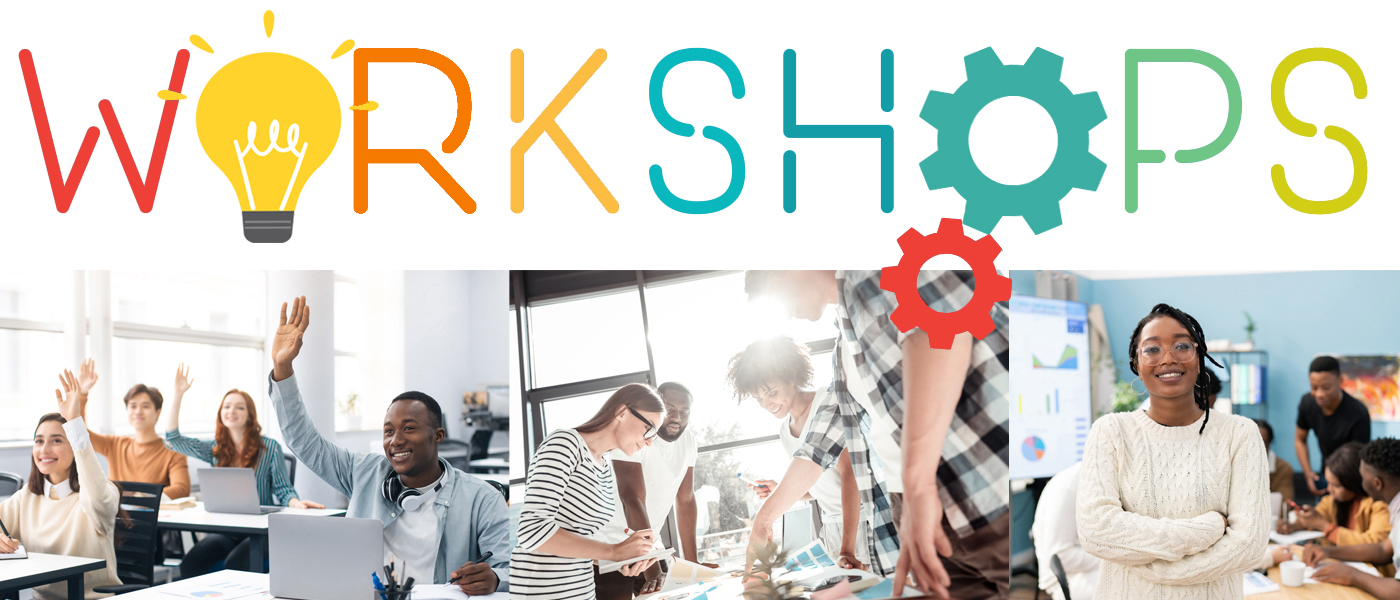July 1-5, 2024
Brussels, Belgium
EdMedia Workshops
Monday, July 1
Mastering the (Journal) Writing Game – Play to Win!
Abstract: Journal writing can be likened to a game of Monopoly, where you roll the dice and submit a draft to a likely journal, spinning a double, the manuscript will be sent for peer review. Upon the next roll, your paper may be rejected as you draw a Chance card which sends you back to the start. But your next roll lands on Park Lane, the best property and you begin again, with a new journal, a new chance for paper acceptance. This workshop will unpack the writing game and give you the best writing strategies and processes to win! It draws on expert knowledge and experience with journal writing tailored to early career researchers.
The first section of the workshop involves a panel of experts providing key experiences and insights about their journal writing approaches. A ‘take-away’ list of strategies will be generated. The second section of the workshop involves round-table activities where journal sections (Introduction, Literature Review, Methodology, Findings, Discussion and Conclusions) will be work-shopped. The final session will be focused on targeting a Journal (how to choose, guidelines, editorial process). You will walk away with a list of strategies for writing a journal article; key journal writing elements; and a process for finding and working with journals. Game on!
Pre-reading: Sarah Prestridge, Conor McGuckin, Aideen Hunter & Tony Hall (2023) Mastering the writing game: practical insights for early career researchers and supervisors, Irish Educational Studies. DOI: 10.1080/03323315.2023.2265342

 Presenters: Associate Professor Sarah Prestridge, Griffith Institute for Educational Research, examines the areas of digital pedagogies, online teaching, connected learning and self-generating professional learning. She has co-authored over 77 high quality publications with experts from over 20 countries exploring theoretical frameworks while building relevance to local issues for impact on policy and practice. In 2020 and 2021 Sarah was awarded national recognition as the top scholar in the field of Teaching and Teacher Education in Australia. She has also presented international keynotes, seminars, workshops in the USA, Europe, South-Asia and Asia-Pacific and has been an invited scholar in Germany, Italy, Belgium, Indonesia, and the USA. She is an active and passionate researcher who builds sustained research partnershipsexploring end-user impact and adoption.
Presenters: Associate Professor Sarah Prestridge, Griffith Institute for Educational Research, examines the areas of digital pedagogies, online teaching, connected learning and self-generating professional learning. She has co-authored over 77 high quality publications with experts from over 20 countries exploring theoretical frameworks while building relevance to local issues for impact on policy and practice. In 2020 and 2021 Sarah was awarded national recognition as the top scholar in the field of Teaching and Teacher Education in Australia. She has also presented international keynotes, seminars, workshops in the USA, Europe, South-Asia and Asia-Pacific and has been an invited scholar in Germany, Italy, Belgium, Indonesia, and the USA. She is an active and passionate researcher who builds sustained research partnershipsexploring end-user impact and adoption.
Dr Aideen Hunter is a lecturer at Ulster University where she teaches undergraduate education, PGCE, Masters and PhD courses. She is a former classroom teacher, school governor and Educational Studies Association of Ireland executive member. Her areas of specialism are Religious Education, integration and pluralism, teacher professional development and Special Education. She has recently been awarded the 2022 John Coolahan award for her research into multi-belief contexts in Ireland. Aideen has a particular interest in supporting and encouraging beginning academic researchers and as a result has introduced an international ECR award as part of ESAI to help support the development of early career researchers. In addition to this, she has established a recurring special issue of the Irish Educational Studies Journal to provide early career researchers with a dedicated space for their work, with supporting guidance during the process of review.
Team-Based Gamification for Enhancing Student Collaboration and Learning in Online Courses
Abstract: There are many forms of gamification in learning, but few about how to design an entire online course around a game. Oftentimes students hesitate to take an online course due to its isolating environment and lack of connection with the instructor or peers. This workshop will model how to blend a game successfully into an online course. An online course game will serve as a model to provide strategies and examples of how to design a game, what materials are needed, and how to structure an online game to be effective. To build an online classroom community, students need opportunities to collaborate beyond the traditional discussion board. By implementing a team-based game, students are engaged in new and creative ways in the online environment. Games can be designed in a way to provide a variety of optional challenges and opportunities that will reinforce the learning objectives and skills. This workshop will share the data of this study and then model how to design your own gamified online course. Attendees will learn about the importance of a theme and create a scenario to use as the basis of their game. Next, they will design their digital gameboard or leaderboard and outline their game’s rules. Examples will be provided of team and individual challenges to differentiate how students engage with their team and participate in the game. Finally, strategies will be shared to help attendees understand how to manage and run the game throughout the semester.
 Presenter: Dr. Gina Solano is an Assistant Professor of Educational Technology in the Department of Secondary Education and Educational Technology. She teaches a variety of courses in educational technology, research, and teaching methods on such topics as technology trends, STEM, multimedia, online learning, instructional course design, and more. Her research interests include: gamification, AI, virtual reality, social media, micro-credentials, digital badges, and the use of technology for service learning, social justice, and improving teaching and learning. Dr. Solano is avidly involved in providing professional development for K-16 educators by participating in conferences and workshops for improving technology adoption practices. When not at work, she loves to travel, craft, and cook with her family. She considers herself a teacher, techie, and traveler!
Presenter: Dr. Gina Solano is an Assistant Professor of Educational Technology in the Department of Secondary Education and Educational Technology. She teaches a variety of courses in educational technology, research, and teaching methods on such topics as technology trends, STEM, multimedia, online learning, instructional course design, and more. Her research interests include: gamification, AI, virtual reality, social media, micro-credentials, digital badges, and the use of technology for service learning, social justice, and improving teaching and learning. Dr. Solano is avidly involved in providing professional development for K-16 educators by participating in conferences and workshops for improving technology adoption practices. When not at work, she loves to travel, craft, and cook with her family. She considers herself a teacher, techie, and traveler!
Tuesday, July 2, 1:45-3:45 PM
Creating Educational Videos with an AI Avatar Video Generator
Abstract: The integration of Artificial Intelligence (AI) into the creation of learning materials represents a cutting-edge frontier. This workshop is designed for educators, content creators, and instructional designers, and will introduce participants to the potential of AI avatar software in the production of educational videos. Through interactive demonstrations and guided practice, participants gain practical skills in utilizing AI avatar software to create educational videos that meet different learning styles and needs. We will explore case studies of successful implementations and discuss strategies for integrating AI avatars into various educational contexts, from K-12 to higher education and corporate training. Additionally, the workshop will address ethical considerations and best practices in the use of AI in education, ensuring that participants are equipped to responsibly navigate the challenges of digital content creation. Participants will leave the workshop with an initial understanding of the capabilities of AI avatar software and their first experience in creating educational videos with this new technology.

 Presenters: Benedikt Brünner is a PhD student at Graz University of Technology in the research area educational technology. He is part of the research project Future of Digital Education and Learning (FutureDEAL) and is involved in the Department of Educational Technology of Graz University of Technology. He had previously taught computer science and biology in a secondary school Austria for over two years.
Presenters: Benedikt Brünner is a PhD student at Graz University of Technology in the research area educational technology. He is part of the research project Future of Digital Education and Learning (FutureDEAL) and is involved in the Department of Educational Technology of Graz University of Technology. He had previously taught computer science and biology in a secondary school Austria for over two years.
Martin Ebner is currently head of the Department Educational Technology at Graz University of Technology and therefore responsible for all university wide e-learning activities. He holds an Adjunct Prof. on media informatics (research area: educational technology) and works also at the Institute for Interactive Systems and Data Science as senior researcher. (https://aace.org/conf/edmedia/sigs/)
Wednesday, July 3, 11:30 AM-12:30 PM
Experiences with Artificial Intelligence in the Classroom
Abstract: This year’s SIG meeting will focus intensively on the topic of “Experiences with Artificial Intelligence in the classroom”. AI changes education maybe radically and had hopefully a positive impact on education. Therefore, we ask for short presentations and inputs to discuss our practical experiences with AI use in education amongst all participants. Everyone is cordially invited to come and share their challenges, their impact, their worries or success stories or to get to know the latest findings and tools.

 Presenters: Benedikt Brünner is a PhD student at Graz University of Technology in the research area educational technology. He is part of the research project Future of Digital Education and Learning (FutureDEAL) and is involved in the Department of Educational Technology of Graz University of Technology. He had previously taught computer science and biology in a secondary school Austria for over two years.
Presenters: Benedikt Brünner is a PhD student at Graz University of Technology in the research area educational technology. He is part of the research project Future of Digital Education and Learning (FutureDEAL) and is involved in the Department of Educational Technology of Graz University of Technology. He had previously taught computer science and biology in a secondary school Austria for over two years.
Martin Ebner is currently head of the Department Educational Technology at Graz University of Technology and therefore responsible for all university wide e-learning activities. He holds an Adjunct Prof. on media informatics (research area: educational technology) and works also at the Institute for Interactive Systems and Data Science as senior researcher. (https://aace.org/conf/edmedia/sigs/)
